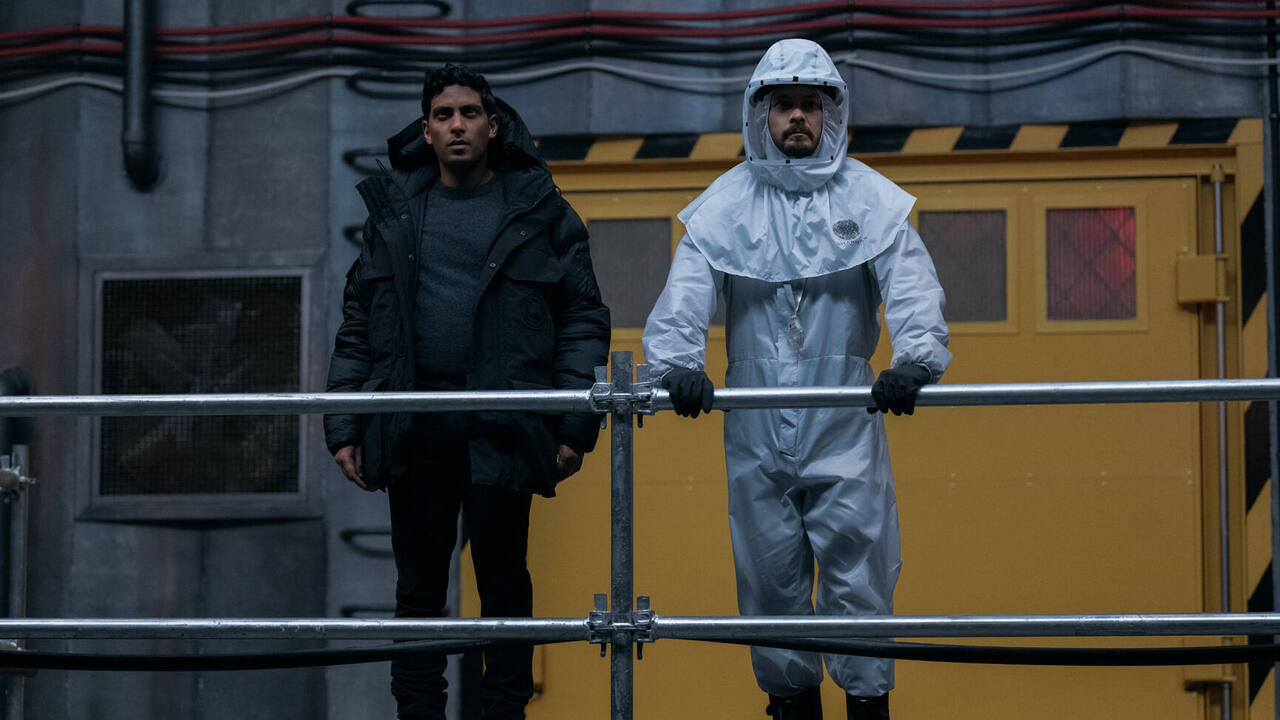
Fresh out of the second chapter of Invasion’s third season, I find myself drawn further into its haze of signals, secrets, and shifting loyalties. The episode feels like a slow unraveling, more atmospheric than explosive, but it manages to pull you in with its quiet menace and restrained storytelling.
Mitsuki’s return to the forefront anchors the narrative. The way she’s lured back by the alien signals doesn’t scream with spectacle, but it hums with urgency. Her guarded exterior cracks, and through that fissure we glimpse not just fear but a responsibility she can’t shake. Those small shifts in her hesitation, her reluctant acceptance, do more to stir unease than any loud confrontation could. The direction lingers on her silences, her listening, her stillness, which builds tension with precision rather than force.
In contrast, Nikhil’s mission carries an entirely different flavor. He’s tested, pressed to prove loyalty in a way that feels both dangerous and strangely opaque. There’s no doubt the stakes are high, yet the storytelling occasionally leaves those stakes too abstract. The unease is present, but without firmer context, it risks blurring into vagueness. It’s the kind of choice that adds mystery, yes, but also keeps you at a small remove from fully investing in his conflict. That distance slightly dulls what could otherwise be an electric narrative thread.
Still, when the show leans into sensory detail, it excels. The sound design is razor-sharp, alien transmissions don’t thunder, they seep. The visuals follow suit: soft edges, patient edits, moments that stretch rather than snap. Instead of overwhelming you with spectacle, the episode unsettles you in quiet increments. The tension isn’t in explosions; it’s in the pause before the static, the tremor in a gaze, the suggestion of something immense pressing just out of view. It’s an approach that suits Invasion’s identity, and in this episode, it pays off beautifully.
The script is similarly spare. Dialogue is measured, weighted, leaving much unsaid. Characters interact with a kind of suspended urgency—nobody overexplains, nobody grandstands. That restraint works wonders in Mitsuki’s scenes, but it occasionally leaves Nikhil underdeveloped. His choices matter, but the writing rarely lets him breathe as a full person. A more vulnerable moment, a flicker of hesitation, could have given us a better anchor into his humanity. As it stands, his role feels more like a piece in play than a character fully opened to the audience.
And yet, the creative risks feel intentional. Invasion doesn’t want to hand-hold or overstate. It wants you to lean in, to feel uneasy with the half-known. Mitsuki’s glow of recognition when the signal takes hold, so faint it could be missed, captures that ethos. You sense a larger design moving beneath the surface, a pattern barely coming into view. It’s cinematic storytelling that trusts the audience to notice, to participate in the tension rather than have it spelled out.
Tonally, the episode keeps faith with the show’s larger rhythm. This is not action-driven science fiction; it’s mood-driven, where dread is stretched across silences and intimacy. The alien threat is less a monster on-screen and more a distortion in the air. And that works. It makes you feel as though the invasion is not just happening to the world, but inside the characters themselves, inside Mitsuki’s guarded calm, inside Nikhil’s uncertain resolve.
The larger arc also hints at convergence. You can feel characters slowly pulled into the same gravitational field, though they still orbit in isolation. That fragility is compelling. It suggests alliances to come, but ones forged out of fracture, not harmony. There’s promise in that tension, and it’s a promise this episode wisely refuses to resolve too soon.
Where the episode stumbles, though, is in its balance of atmosphere and emotional connection. Its mood is strong, but it sometimes overshadows the more personal dimensions. The audience needs to feel not only the strangeness of the alien presence but also the raw human cost behind these choices. Without a bit more warmth or vulnerability, the tension risks feeling like an elegant but slightly cold construction.
Still, the craftsmanship is undeniable. From its muted palette to its careful soundscape, the episode is confident in its style. It resists easy beats, choosing to leave viewers uneasy, uncertain, and watchful. That’s a gamble, but it’s one that suits the nature of this story. After all, what is an invasion if not a state of being perpetually unsettled?
By the end, I was both satisfied and restless, satisfied because the show continues to build with patience and artistry, restless because the characters still feel like they’re holding something back. But that may be exactly where Invasion wants us: waiting, listening, and uneasy in the silence.
Final Score- [7.5/10]
Get all latest content delivered to your email a few times a month.
Bringing Pop Culture News from Every Realm, Get All the Latest Movie, TV News, Reviews & Trailers
Got Any questions? Drop an email to [email protected]